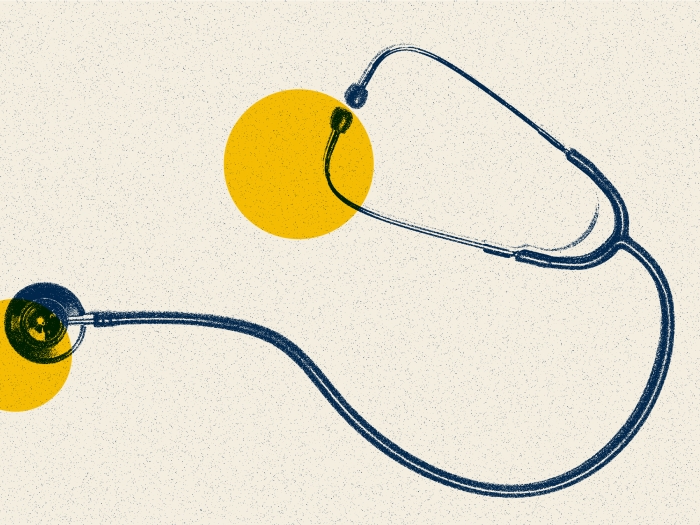Researchers say more studies need to be conducted to determine possible uses of convalescent plasma.
Author |
*Adapted from a National Institutes of Health story*
A new study published by the National Institutes of Health found that COVID-19 convalescent plasma did not prevent disease progression in an at-risk group of COVID patients when administered within one week of their symptoms.
The trial, which was stopped in February 2021 due to lack of efficacy based on planned interim analysis, analyzed data from 450 patients who visited emergency departments with laboratory-confirmed COVID diagnoses and symptoms that began within a week. The findings revealed treatment with convalescent plasma from COVID survivors was no more effective at preventing disease progression than vitamins and saline given to a control group.
“While the results did not show significant improvement, this doesn’t tell us that convalescent plasma is completely ineffective at treating all COVID-19 patients,” said Frederick Korley, M.D., Ph.D., the first author of the paper and an associate professor of emergency medicine at University of Michigan Medical School. “Convalescent plasma may still be useful if given very early in the course of illness and in doses that are much higher than doses used in our study. There are other sub-groups of patients that may benefit from convalescent plasma, and that is what we need to figure out with future research.”
Results of the Clinical Trial of COVID-19 Convalescent Plasma of Outpatients (C3PO) – funded primarily by the National Heart, Lung, and Blood Institute (NHLBI), part of the NIH – appear in the current online issue of the New England Journal of Medicine.
COVID-19 convalescent plasma, also known as “survivor’s plasma,” is blood plasma derived from patients who have recovered from the virus. In 2020, the FDA issued an emergency use authorization to allow the use of convalescent plasma in hospitalized COVID patients. Researchers wanted to know whether administering the convalescent plasma might benefit those recently infected with SARS-CoV-2, the virus that causes the disease, but who were not severely ill and could be treated as outpatients. The objective was to prevent progression to severe COVID-19 illness.
The randomized, controlled C3P0 clinical trial launched in August 2020 and was conducted by the SIREN clinical trial network among adult outpatients who presented to emergency departments with mild COVID symptoms during their first week post-infection. The median age of participants was 54 years, and slightly more than half were women. Participants also had at least one risk factor associated with severe COVID-19, such as obesity, hypertension, diabetes, heart disease or chronic lung disease, but none were ill enough at the time to be hospitalized.
Participants in the study, which took place at 48 hospital emergency centers across the United States, were racially and ethnically diverse. The researchers randomly assigned them to receive treatment with either high-titer COVID-19 convalescent plasma (containing anti-COVID-19 antibodies) or placebo (salt solution infused with multivitamins that lacks antibodies).
Researchers compared the patients in both arms for disease progression within 15 days of treatment, meaning the patients either needed to seek further emergency or urgent care, were admitted to the hospital or died. At an interim analysis six months into the trial, the researchers found no significant difference in disease progression between the two groups. Of the 511 patients enrolled in the trial, disease progression occurred in 77 patients (30%) in the COVID-19 plasma group compared with 81 patients (31.9%) in the placebo group. The plasma intervention did not harm the patients, the researchers found.
“We were hoping that the use of COVID-19 convalescent plasma would achieve at least a 10% reduction in disease progression in this group, but instead the reduction we observed was less than 2%,” said Clifton Callaway, M.D., Ph.D., the contact principal investigator for the C3PO trial and professor of emergency medicine at the University of Pittsburgh. “That was surprising to us. As physicians, we wanted this to make a big difference in reducing severe illness, and it did not.”
The reason the intervention did not produce the expected results is unclear, Callaway said. Researchers are continuing to look at possible explanations, including insufficient plasma dose, timing of plasma administration, host-related factors or other aspects of the host tissue responses to the infection, he added.
Additional studies of COVID-19 convalescent plasma are ongoing or planned in different populations, including one trial that will assess whether the plasma can prevent infection in individuals exposed to COVID-19 but are not themselves infected.
“We are conducting additional studies on blood samples we collected from patients in our study, as well as waiting for the results from other convalescent plasma studies, to gain a clearer understanding of whether there may be a subset of COVID-19 patients that may benefit from convalescent plasma treatment,” Korley said.
This work was supported by awards 1OT2HL156812-01 from the NHLBI, U24NS100659 and U24NS100655 from the National Institute of Neurological Disorders and Stroke of the National Institutes of Health, and contract 75A50120C00094 from BARDA. For a more complete funding disclosure and list of authors, please see the full NEJM research article.
Study: Early Convalescent Plasma for High-Risk Outpatients with Covid-19 NEJM. DOI: 10.1056/NEJMoa2103784
About the National Heart, Lung, and Blood Institute (NHLBI): NHLBI is the global leader in conducting and supporting research in heart, lung, and blood diseases and sleep disorders that advances scientific knowledge, improves public health, and saves lives. For more information, visit www.nhlbi.nih.gov.
About the National Institutes of Health (NIH): NIH, the nation's medical research agency, includes 27 Institutes and Centers and is a component of the U.S. Department of Health and Human Services. NIH is the primary federal agency conducting and supporting basic, clinical, and translational medical research, and is investigating the causes, treatments, and cures for both common and rare diseases. For more information about NIH and its programs, visit www.nih.gov.

Department of Communication at Michigan Medicine





